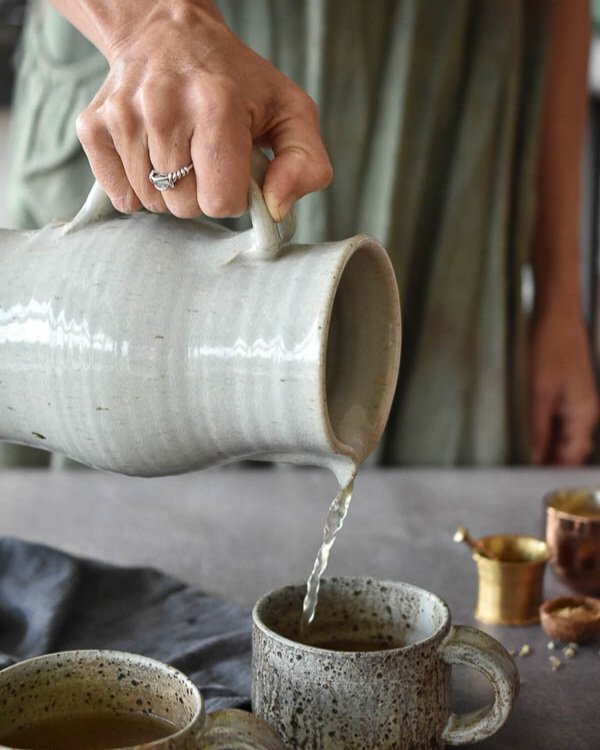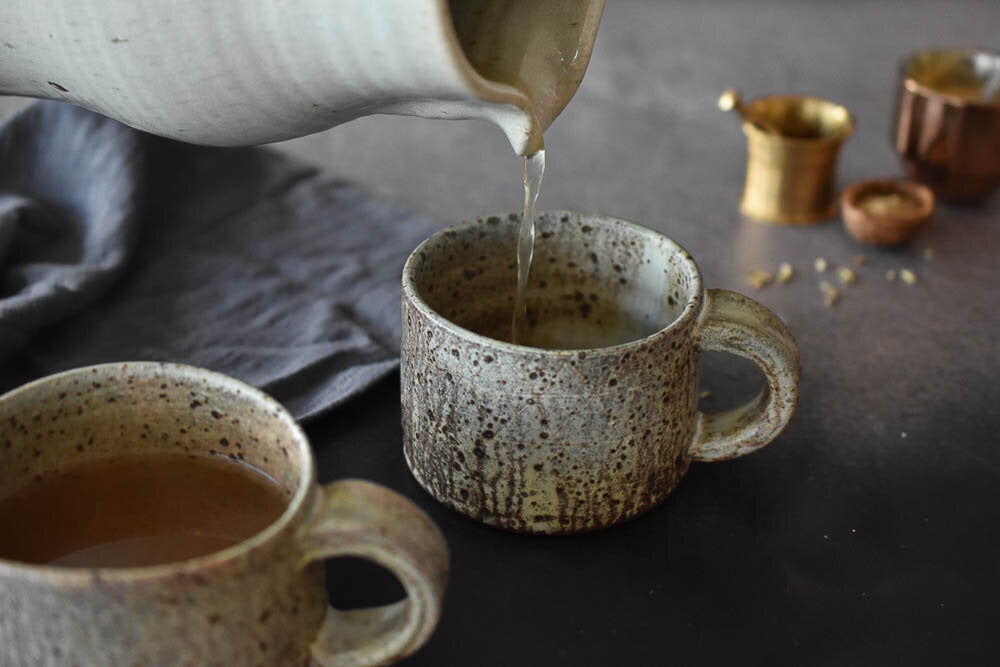
With tapas, the Yogic practice of discipline, you can experience deep change in your life.
The word discipline might not sound like a lot of fun, but if you think of it as a daily commitment to honor your desire to live a fulfilling life
then you can see how discipline could become your greatest ally.
Making a change and sticking with it has a lot to do with planning.
Step 1: You desire a change.
Step 2: You set an intention to allow that change to happen.
Step 3: You make a plan and then you follow through with commitment.
But sometimes good intentions fizzle out and the best laid plans go sideways. This doesn’t mean you should give up.
Restate your intention.
For a new change to become integrated in your daily life, you’ll likely find you need to revisit your desire and intention in order to keep your commitment.
Check your motive
Look at why you want to do it - what is it that’s motivating you? As you answer your question, practice satya - self-honesty. Then look again at how you’re going about making the change. If you find that you’re not following through like you said you would, then make an adjustment and see what happens
Show up for yourself each day. That's tapas.
Like all of the Yamas and Niyamas, tapas is a practice for daily life - on and off the mat. If you’re practicing Ayurveda, tapas is definitely helpful for making changes to your diet and lifestyle so that you can feel better in your body and have a greater sense of connection to your spirit.
To follow a lifestyle based on the principles of Ayurveda may require a fair bit of change. One such example is reducing or eliminating the intake of caffeine. I would consider this to be a shift in both the diet (ahar) and lifestyle (vihar). It’s not only about what you consume, but when and how. Each day (sometimes several times per day) many people grab a coffee or caffeinated tea to go. What does this indicate? General fatigue, a perceived lack of time, and possibly also some level of compulsion and addiction.
So let’s look at the motive for reducing, and ideally, removing coffee and caffeinated tea (black, green and white teas all have caffeine and they come from the same plant).
Ayurveda gives you 5 great reasons to reduce your caffeine intake:
1. Your digestive system will thank you.
Coffee and tea are bitter, pungent and astringent, tastes which derange vata and pitta. When these doshas are out of balance, there is a drying effect on the digestive tract, which contributes to gas, constipation and diarrhea.
2. You can avoid the exhausting rajas-tamas cycle (your nervous system will thank you).
Caffeine is rajasic, which means it promotes lots of activity and action, particularly in the mind. This is why so many of us have become dependent on it, but this false boost in energy comes at a price. The continual over-stimulation of the nervous system leads to mental, physical and emotional fatigue and dullness (tamas).
3. A peaceful sleep is everything.
An over-wrought nervous system will have more of a challenge settling down to sleep at night. Even a cup of tea or coffee in the morning will have a lasting impact throughout the day and on the sleep cycle. Most of my clients see great improvement in their sleep when they remove caffeine. They tell me it’s really worth it because when they are well-rested their experience of life improves greatly.
4. Refined sugar: it's a drug, and a toxin.
People like to add lots of refined sugar to coffee and tea. Refined sugar is a toxic, tamasic drug that imbalances all doshas and creates ama. It is destructive to the organs, especially the pancreas and liver. The body does not digest it like food, but like a toxin. It is processed in the liver and pancreas and weakens ojas.
5. Candida overgrowth: something you want to definitely avoid.
Lots of caffeine plus refined sugar is a recipe for candida overgrowth, which is just plain uncomfortable. Candida is a yeast or fungus that occurs naturally in the intestines. Overgrowth causes symptoms, such as itching in the vagina, rectum or other body parts, burning, cravings and distortion of the mind. Overgrowth of candida is the result of ajeerna or indigestion. Sugary coffee and tea in large amounts can cultivate the acidic digestive environment for candida to grow beyond normal levels. Candida infection may be in the genitals, ears, and mouth or throughout the body system. Keeping candida in check is key for our vitality and well-being.
If you’re experiencing any of the above issues, it's time for tapas and tea.
Warming herbal teas in moderation can help to balance dosha, depending on the qualities of the tea and your vikruti (the current state of your constitution). Herbal teas shouldn’t take the place of water and be consumed all day long because they do tend to be stimulating, spicy and astringent. In other words, they will have an impact on your digestion. Moderation is key. Just a cup in the morning or perhaps one in the afternoon can be very enjoyable.
Natural sweeteners
Enjoy a mild natural sweetener. The sweet taste calms vata and pitta and increases kapha. Stick to about a ½ teaspoon per cup - in excess the sweet taste will derange all doshas and sugar metabolism.
Here are 3 nourishing options:
1. Honey is sweet, astringent and pungent with pungent vipaka. It is warming. In moderation it increases pitta and decreases vata and kapha. Honey is sattvic and is considered the nectar of the gods. It has some laxative qualities, builds the dhatus, increases ojas and nourishes us on all levels.
2. Jaggery is sweet and cooling and has many vitamins and minerals. It is made from cane or palm.
3. Maple syrup is sweet and cooling. It decreases pitta and can increase vata and kapha in excess.
Blend your own tea
Make your own herbal tea blends using fresh spices and herbs you have on hand. This is a much better option than tea bags, which will tend to grow mold as they sit on supermarket shelves.
Take time to enjoy your tea. If you want to replace your caffeinated morning beverage with herbal tea, then plan to prepare it the night before (here’s the practice of tapas!). Simply soak some herbs in water overnight, then bring to a boil in the morning. Let cool, add your sweetener then sit and enjoy in peace.
3 delightful recipes for healing Ayurvedic teas
Here are 3 recipes for Ayurvedic teas that will balance the doshas and support agni. Start your mornings feeling rejuvenated and enjoy consistent energy throughout the day.

AUTUMN TEA FOR CALMING VATA
Serves 2
Ingredients
½ tsp powdered ginger
1 whole clove or ¼ tsp powdered clove
¼ tsp turmeric
Sweetener
½ teaspoon honey or jaggery per person.
Method
Soak the ginger, clove and turmeric overnight and bring to a boil in the morning. If not soaking then bring to a boil for 3-4 minutes. When tea is cool enough to drink, add honey or jaggery. Enjoy a cup in the morning or late afternoon. Moderation is key as too much of anything will cause more imbalance.
AGNI SUPPORT TEA
Serves 2
Ingredients
½ tsp fresh chopped ginger
¼ tsp licorice powder
¼ tsp fennel
Sweetener
½ teaspoon honey or jaggery per person.
Method
Soak the ginger and licorice in 2 cups water overnight and bring to a boil in the morning. Or without soaking boil for 3-4 minutes. Turn off to cool. Add honey when cool enough to drink. Add raw milk for grounding in the cool wind of autumn and leave it out in spring when kapha has accumulated.
Have 1-2 cups sipped through the day to calm vata dosha and support your agni.
COOLING AGNI TEA
Serves 2
Ingredients
½ tsp coriander seeds
⅛ tsp cardamom powder or ¼ tsp cardamom seeds
4 leaves chopped mint
Sweetener
½ teaspoon maple syrup per person.
Method
Soak coriander, cardamom and mint overnight in 2 cups water. Bring to a boil in the morning. Without soaking boil for 3-4 minutes. Turn off to cool and add maple syrup. Have with raw milk to soothe a tikshna (overheated) agni.
